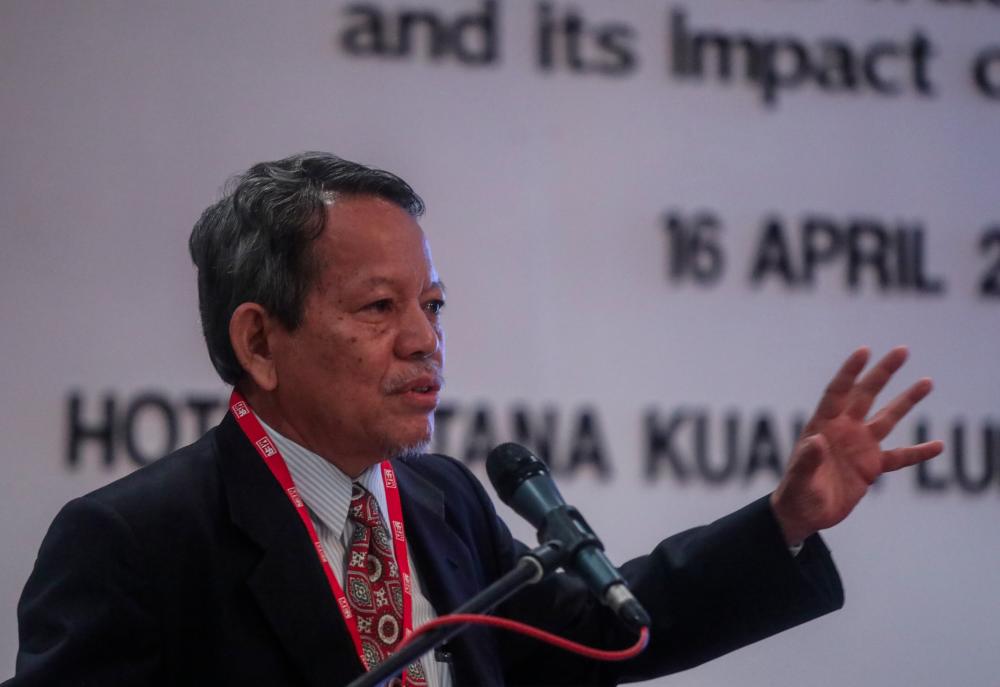KUALA LUMPUR: It would not be fair to judge Pakatan Harapan’s (PH) performance based on the country’s less-than-stellar short-term economic outlook, just one year after coming into power, according to economists.
Malaysian Institute of Economic Research (MIER) executive director Prof Emeritus Datuk Dr Zakariah Abdul Rashid pointed out that economic issues required a more delicate approach when addressing, and could not be resolved within just 12 months, especially with external factors considered.
“You can’t really judge whether or not the government has been performing well post-14th General Election (GE14) from the economic outlook, because these are subjected to ups and downs of the global and regional changes, and this is beyond us.
“Malaysia, for instance, is not able to influence the price of crude oil or control the situation if there is an intense trade war between the United States and China.
“Most times, we are just ‘price takers’,“ he said at the seminar on “GE14 and the Year Since: Analyses and Perspectives”, here, today.
Zakariah added that despite its fair share of criticism, the PH government’s economic performance was commendable at the very least, considering it has managed to deliver a surplus in the country’s trades amidst a volatile market.
“We can still export more merchandised goods than we import them,“ he noted.
In January, the International Trade and Industry Ministry announced that the country posted its largest trade surplus since 2012, as it widened by 22.1% to RM120.27 billion for the year ending 2018.
While imports grew by 4.9% to RM877.74 billion, its exports rose by 6.7% to reach a value of RM998.01 billion.
Fellow economist Prof Tan Sri Dr Noor Azlan Ghazali of Universiti Kebangsaan Malaysia (UKM) echoed Zakariah’s statement that it would be unwise to expect the PH government to sort things out so quickly.
“To be fair, the general election (in May last year) happened in an environment where the global economy was slowing down. Some countries, in fact, performed worse than us during the period since.
“If we are doing poorly and all other countries in the region are performing much better, only then there is a problem,“ he said.
Assoc Prof Dr Gairuzazmi M. Ghani from the International Islamic University Malaysia (IIUM) similarly agreed that economic matters could not be resolved within a year or two, as structural changes to the economy required a long period of time to see results.













